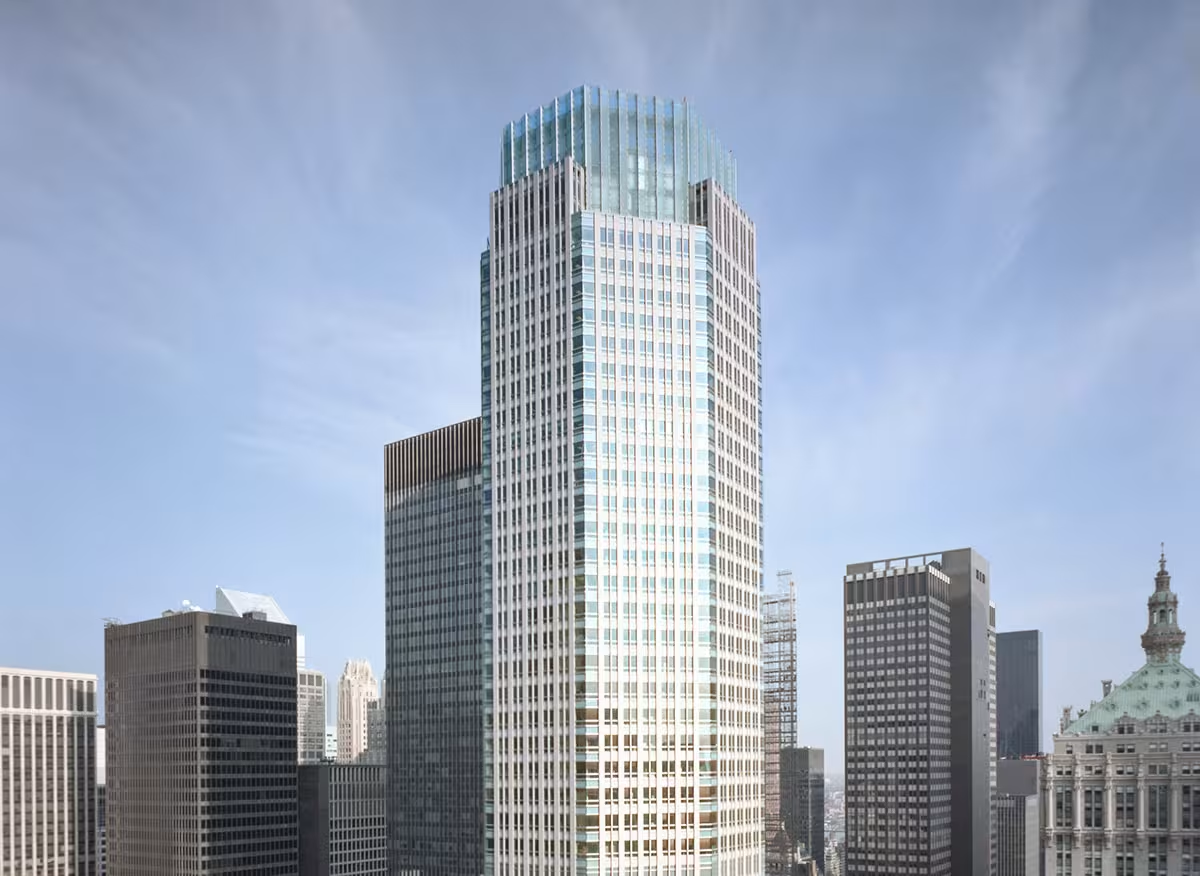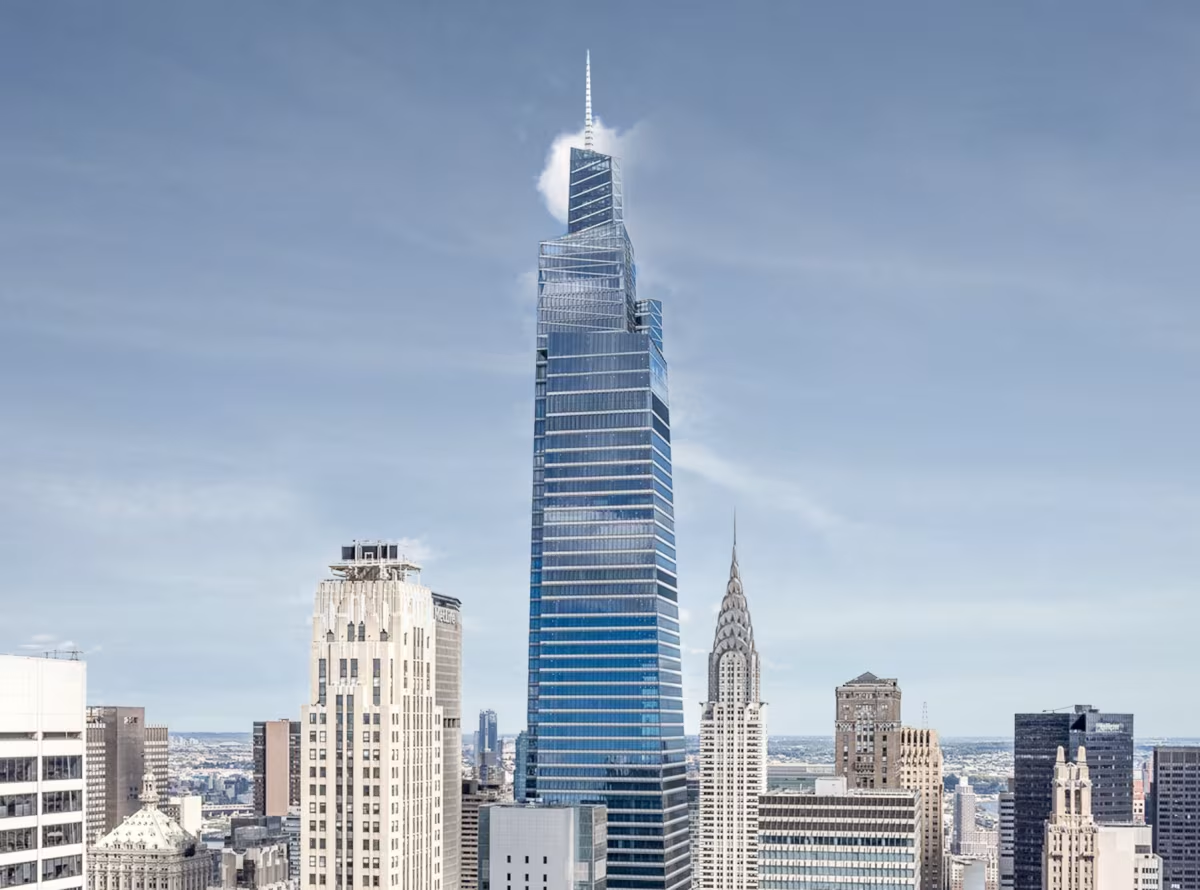383 Madison Avenue Building vs One Vanderbilt


Comparing the 383 Madison Avenue Building and the One Vanderbilt is interesting because they both rise in New York, NY, yet they were conceived by two different design teams, Skidmore, Owings & Merrill and Kohn Pedersen Fox Associates, and were completed at different points in time. They were finished more than a decade apart.
This contrast within the same city allows us to see how different creative minds interpreted the evolving needs of New York across time.
Let's take a closer look!
Height & Size
The One Vanderbilt is clearly the larger tower of the two, both in terms of height and number of floors. It rises to 1401ft (427m) with 67 floors above ground, while the 383 Madison Avenue Building reaches 755ft (230m) with 47 floors above ground.
Of course, each project may have faced different briefs or regulatory constraints, which we don't really know about and could also explain the outcome.
Architectural Style
Both the 383 Madison Avenue Building and the One Vanderbilt were designed in line with the aesthetic conventions of the Contemporary style.
At the time, this style was at the height of its popularity. So both Skidmore, Owings & Merrill and Kohn Pedersen Fox Associates followed what was in many ways expected of them, producing designs that fit comfortably within contemporary architectural norms, rather than breaking with convention.
Uses
Both the 383 Madison Avenue Building and the One Vanderbilt were designed to serve as commercial towers, and that has remained their main use since their completion, serving similar roles in the urban fabric.
Structure & Facade
The two buildings opted for different structural and facade solutions.
The 383 Madison Avenue Building uses a Frame system, which relies on a regular grid of columns and beams to sustain its weight, while the One Vanderbilt uses a Trussed Frame system, that uses diagonal bracing in addition to beams and columns for stability.
And when it came to the facade, the Modular went with a Modular facade, which employs prefabricated panels, often mixing solid surfaces with smaller windows, while the One Vanderbilt opted for a Curtain Wall facade, that uses a lightweight glass curtain wall hung from the structure.
| 383 Madison Avenue Building | One Vanderbilt | |
|---|---|---|
| Skidmore, Owings & Merrill | Architect | Kohn Pedersen Fox Associates |
| 1999 | Construction Started | 2017 |
| 2001 | Year Completed | 2020 |
| Contemporary | Architectural Style | Contemporary |
| Commercial | Current Use | Commercial |
| 47 | Floors Above Ground | 67 |
| 230 m | Height (m) | 427 m |
| 86,890 m² | Usable Area (m²) | 162,600 m² |
| Frame | Structure Type | Trussed Frame |
| Steel | Vertical Structure Material | Steel |
| Poured Concrete Over Metal Decking | Horizontal Structure Material | Poured Concrete Over Metal Decking |
| No | Facade Structural? | No |
| Granite, Glass | Main Facade Material | Aluminium, Glass, Terracotta |
| Turner Construction Company | Main Contractor | AECOM Tishman Construction |
| OTIS Elevator Company | Elevator Company | Schindler |
| Jaros Baum & Bolles | MEP Engineer | Jaros Baum & Bolles |
| WSP Cantor Seinuk | Structural Engineer | Severud Associates Consulting Engineers |
| NY | State | NY |
| New York | City | New York |
| 383 Madison Avenue | Address | 1 Vanderbilt Avenue |